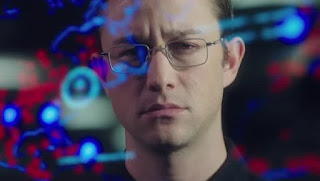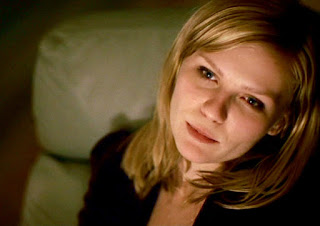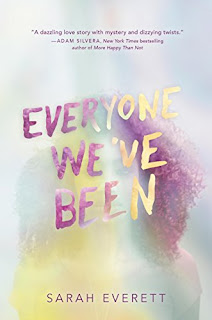"The Masses have never thirsted after truth. They turn aside from evidence that is not to their taste, preferring to deify error, if error seduce them. Whoever can supply them with illusions is easily their master; whoever attempts to destroy their illusions is always their victim." —Gustave Le Bon, The Crowd: A Study of the Popular Mind
Snowden (2016)—based on The Snowden Files: The Inside Story of the World's Most Wanted Man (2014) by Luke Harding—marks Oliver Stone's return to his politically oriented films as Born on the Fourth of July (1989), JFK (1991) and Nixon (1995). Although not reaching his previous artistic heights, Stone's latest effort still compounds a very intriguing portrayal of NSA whistleblower Edward Snowden.
Mimicking the serious tone of Laura Poitras's groundbreaking documentary Citizenfour (2014), Stone gives us an uneasy ride through a vertiginous landscape of the Orwellian US Intelligence Community and the deep state bent on massive global surveillance. “In one month, NSA collected 3.1 billion calls and emails from inside the United States… and that’s a partial count, it doesn’t include any Telecom company data,“ confides Snowden at one point.
Snowden’s fictionalized NSA boss is named Corbin O’Brian (Rhys Ifans), after the antagonist in Orwell’s “1984,” a clear wink to the oppresive atmosphere permeating the sinister government facilities. “Most Americans don’t want freedom,” O’Brian assures Snowden: “They want security. People already catalog their lives for public consumption. Secrecy is security. And security is victory.”
Joseph Gordon-Levitt impersonates the elusive Snowden in a tour-de-force performance, including his almost robotic speech pattern and mannerisms without ever betraying the humanity of his controversial subject. Stone found Gordon-Levitt’s approach too “documentary-ish” at times and encouraged him to try “for the dramatic side as much as possible.” The charismatic actor (and creator of the interactive HitRecord community) renders an impressive psychological composition—avoiding blending in the shadow of Emmanuel Goldstein—projecting an earnest personality that echoes Snowden's heroic temperament.
Snowden cites Henry David Thoreau as one of his influences. For Thoreau, as reflected in his essay "Civil Disobedience" (1849), the government is primarily an agent of corruption. “There will never be a really free and enlightened State until the State comes to recognize the individual as a higher and independent power,” argues Thoreau. So it's "not too soon for honest men to rebel and revolutionize."
Snowden contacted The Guardian journalist Glenn Greenwald with the intention of granting him exclusive access to thousands of leaked classified documents that would prove an indiscriminate use of the surveillance tools with obscure interests, contradicting Intelligence Director James Clapper's testimony before the Senate in 2013.
Another important asset is Shailene Woodley playing Snowden's longtime girlfriend Lindsay Mills, lending emotional weight to their tumultuous relationship. Their playful banter and thorny arguments feel natural, forcing us to witness the devastating effects of Snowden's stressful schedule over their personal and sexual dynamics.
One of the most interesting segments is Snowden deceiving the security personnel after making a copy of extensive classified information of the NSA, abandoning Hawaii, and escaping as a fugitive accepting temporary asylum in Russia. The real Snowden briefly appears in the film, courtesy of his clandestine collaboration with Stone, warning us of the necessity of rebelling against “a turnkey tyranny.”
Although the film's pace is uneven, Stone manages to break the surreal 'time stands still' mood of the Mira Hotel sequences in Hong Kong, contrasting it with disparate scenarios, where Snowden not only fights his epileptic attacks, he also must pit his principles against his demons, his professional wows against his feelings. In a visual collage scene that suggests the patriotic sparks of Stone's brilliant JFK, Snowden admits to the audience and himself: “the truth sinks in no matter what justifications you’re selling yourself: this isn’t about terrorism, terrorism is the excuse, and the only thing you’re protecting is the supremacy of your government.”
Edward Snowden didn’t want to overthrow the system. “What I wanted to do was give society the information it needed to decide if it wanted to change the system,” he informed to The Nation: “I have a somewhat sneaky way of effecting political change. I don’t want to directly confront great powers, which we cannot defeat on their terms. We cannot be effective without a mass movement, and the American people today are too comfortable to adapt to a mass movement.”
“Power is in tearing human minds to pieces and putting them together again in new shapes of your own choosing.” ―George Orwell, 1984
Article published previously as Movie Review: Oliver Stone’s ‘Snowden’ on Blogcritics.











































